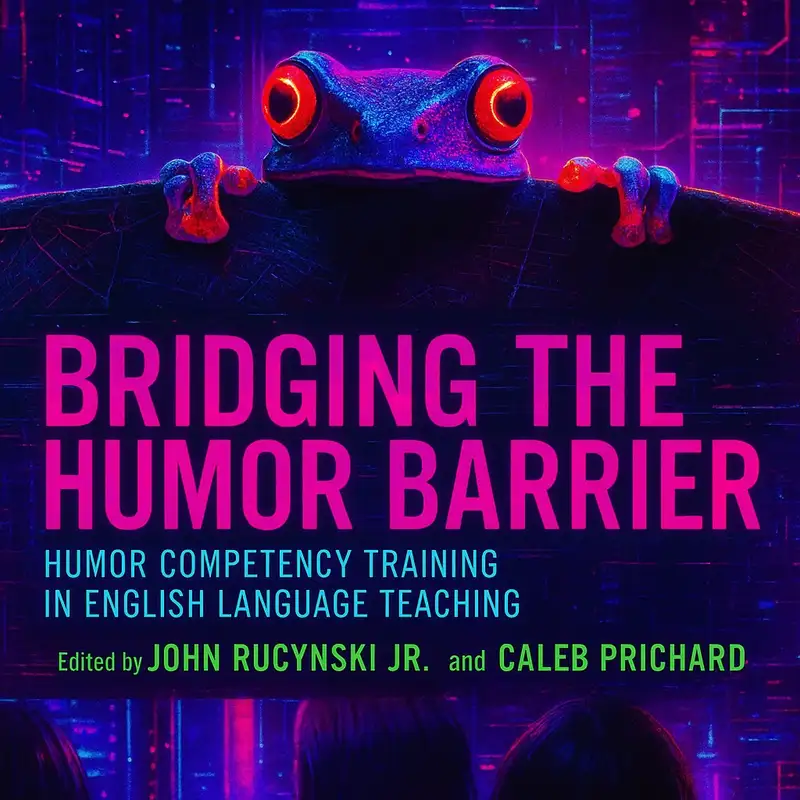*This episode was originally aired in November 2022.
What happens when a pun falls flat across cultures? Why does sarcasm get lost in translation? And can you actually teach someone to understand satire in a second language?
What happens when a pun falls flat across cultures? Why does sarcasm get lost in translation? And can you actually teach someone to understand satire in a second language?
In this episode, we once again sit down with educator, researcher, author, and world-renouned pun-slinger John Rucynski Jr., co-editor of Bridging the Humor Barrier: Humor Competency Training in English Language Teaching, to explore the surprisingly complex world of teaching humor to English language learners. John walks us through:
- The mysterious “humor barrier” and why it trips up so many language learners
- Why jokes, sarcasm, and satire are more than just classroom distractions—they’re essential tools for cultural fluency
- How educators around the world are helping students “get the joke” in English
- How humor ties into sociopragmatic competence, cross-cultural adaptation, and… yes, even junior high textbooks
We also talk about stuff John may not have been fully prepared for—like where he plans to bury bones someday. Funny, right? Whether you’re a language teacher, a linguist, or just someone who’s ever bombed a joke abroad, I hope this episode will give you something to smile—and think—about.
📚 Grab the book: Bridging the Humor Barrier is available in paperback, hardcover, and ebook from Multilingual Matters.
Enjoying the Show? Please consider supporting us—every little bit helps keep the podcast going. And be sure to join the conversation on X (formerly Twitter) @DogePunk2077 and Facebook. For all inquiries, you can reach us at deep.in.japan.podcast@gmail.com.
Thanks for listening, fellow treveler of the ear.
Thanks for listening, fellow treveler of the ear.
🚀🚀 Yoroshiku and rockets 🚀🚀
